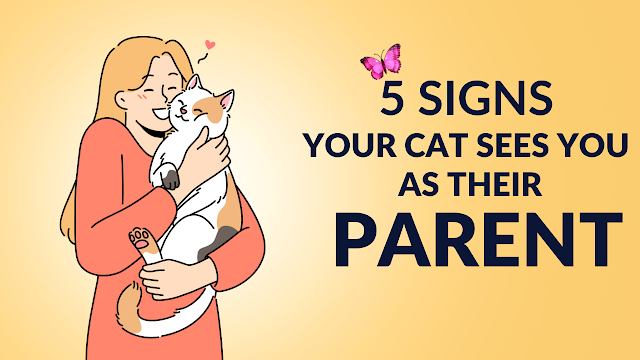Why Do Dogs Lick You?
 |
| image: canva |
Dogs have been cherished companions of humans for centuries, captivating us with their loyalty, playfulness, and unwavering love. One peculiar behavior that often leaves dog owners puzzled and curious is their tendency to shower us with slobbery kisses in the form of licks. While it's undeniably endearing, have you ever wondered why dogs lick us? Is it a sign of affection, communication, or something else entirely?
Why Do Dogs Lick People?
One of the most prevalent reasons why dogs lick people is their innate desire to communicate and establish social bonds. From the earliest stages of their development, dogs rely heavily on their sense of taste and touch to navigate their environment and interact with others. Licking is a behavior that begins in puppyhood, where mother dogs use it as a form of grooming and affection toward their young.
As dogs grow and become part of our families, they continue to exhibit this licking behavior as a means of connecting with their human companions. Licking can serve as a gentle way for dogs to show their affection, convey trust, and strengthen the emotional bond they share with their owners. The act of licking releases endorphins, which induce feelings of pleasure and reinforce positive emotions, further solidifying the dog-human relationship.
Dogs Learn to Lick as Puppies
The origins of a dog's licking behavior can be traced back to their early days as puppies. From the moment they are born, puppies instinctively learn to lick as a means of survival and communication. Licking plays a vital role in their interactions with their mother and littermates. Puppies are born blind and deaf, relying primarily on their sense of touch and taste to navigate their surroundings.
During their first few weeks of life, puppies rely on their mother's licking to stimulate bodily functions, including elimination and circulation. The mother dog's licks also serve as a way to groom her pups and establish a bond within the litter. As the puppies grow, they reciprocate the licking behavior, not only as a grooming mechanism but also as a form of social interaction.
Dogs Lick People to Enhance Smell
One prominent reason why dogs lick their human companions is to enhance their sense of smell. Dogs possess an extraordinary olfactory system, with scent receptors that far surpass our own capabilities. When dogs lick us, their saliva contains chemical compounds that serve as scent enhancers, allowing them to gather more information about our scent and surroundings.
The act of licking transfers these compounds from their tongues to our skin, creating a unique scent profile that dogs can interpret. This heightened sense of smell helps them gather valuable information about our emotional state, health, and even the people or animals we have come into contact with. Through licking, dogs can obtain a deeper understanding of their environment and form stronger bonds with their human counterparts.
Why Do Dogs Lick Your Hands?
One of the most common scenarios where dogs display their affinity for licking is when they target our hands. When dogs lick your hands, it can signify several things, each rooted in their instinctual behavior and communication patterns.
Firstly, licking your hands can be seen as a sign of submission and respect. In the canine world, dogs often express submission to higher-ranking individuals by licking their mouths or faces. By licking your hands, dogs may be instinctively acknowledging your role as their leader and showing deference towards you.
Secondly, dogs use their sense of taste and smell to gather information about their surroundings. Our hands are rich in scents, which can include traces of food, sweat, or other intriguing smells encountered throughout the day. Licking your hands allows dogs to gather valuable olfactory information, helping them better understand their environment and the people they interact with.
Why Do Dogs Lick Your Face?
There are many reasons why dogs lick their owners' faces. Some of the most common reasons include:
- Affection: Dogs lick as a way of showing affection and love. They may lick your face when they are happy to see you, when they are feeling stressed, or simply because they enjoy your company.
- Grooming: Dogs are naturally clean animals, and they groom themselves by licking. They may also lick your face as a way of grooming you, especially if you have food or other smells on your face.
- Submissive behavior: Dogs may lick as a way of showing submissive behavior. This is especially common in puppies who are trying to show their elders that they respect them.
- To get attention: Dogs may also lick as a way of getting attention. If you give them attention when they lick you, they are more likely to continue doing it.
It is important to note that not all dogs lick their owners' faces. Some dogs are more likely to lick than others. If you do not like your dog licking your face, you can try to discourage the behavior by redirecting their attention to something else or by simply ignoring them when they start to lick.
When Is Licking a Problem?
While licking is generally considered a natural behavior for dogs, there are instances when it can become problematic. Understanding when licking becomes excessive or undesirable is crucial for maintaining a harmonious relationship with your furry companion.
One common issue is when dogs excessively lick themselves or specific objects, such as furniture or surfaces. This can indicate underlying medical conditions like allergies, skin irritations, or infections. If you notice persistent and intense licking that leads to skin redness, hair loss, or open sores, it is advisable to consult a veterinarian to rule out any underlying health issues.
Excessive licking can also be a symptom of anxiety or stress in dogs. When faced with separation anxiety or environmental changes, dogs may resort to incessant licking as a self-soothing mechanism. In such cases, it is essential to address the underlying emotional triggers and provide a supportive and calm environment for your furry friend.
Additionally, excessive licking can become a problem when it interferes with daily activities or becomes a nuisance to you or others. Some dogs may display a propensity for licking faces, hands, or feet, which may not always be pleasant or hygienic. Training and redirecting their behavior through positive reinforcement techniques can help establish boundaries and discourage unwanted licking.





Comments
Post a Comment